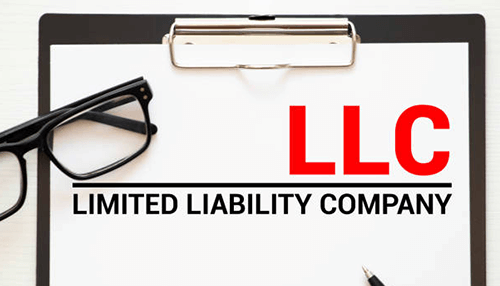The entrepreneurial spirit is alive and well.
There are over 23 million sole proprietorships in the United States, many of which are single-member LLCs.
An LLC is a limited liability company, a mix between a sole proprietorship and corporation. It’s pass-through-taxation absolves LLC owners from paying corporate tax. Plus, freelancers and small business owners enjoy personal liability protection from business matters.
LLCs also enhance the professionalism of your business, an asset for branding and customer service.
Let’s dig more into the details in this beginner’s LLC guide.
How Much Does It Cost to Start an LLC?
Fortunately, starting an LLC is relatively inexpensive compared to other business costs.
LLC costs vary among states.
Some states have higher registration fees and business taxes than others. Thus, you could pay as low as $50 to as high as $500 or more for your LLC. You also have to renew your LLC every year.
Plus, states have varying taxable income minimums. Typically, self-employed LLC owners are required to file taxes for annual incomes of $400 or higher. However, you can still report this data on your personal income tax forms.
Despite LLC advantages, where you reside changes everything. For example, California residents are subject to more fees than LLC owners in Wyoming.
How Are LLCs Taxed?
Most LLC are sole proprietorships, meaning they’re run by one person. These LLC are also called single-member LLCs.
As a sole proprietor, your LLC doesn’t pay business taxes. Rather, you simply document yearly profits on your regular 1040 tax form. However, you would report this data on schedule C of the form.
What If You Own an LLC With Multiple people?
Instead of viewing your LLC as a sole proprietorship, the federal government taxes multiple-owner LLCs as business partnerships.
Similar to single-member LLCs, you and your fellow owners aren’t obligated to file business. Instead, each owner reports their profit share as personal income on their 1040 form, also known as a distributive share. However, this information belongs on Schedule E, not Schedule C.
Despite not having to pay corporate taxes, you still have to file 1065 IRS form, the exact same form as real business partnerships. This form proves that you’re accounting for your profits correctly.
As your LLC grows, investigate different tax structures. For example, at some point, you may benefit from a corporate tax structure.
Bonus Tip Guide for New LLCs
While you don’t have to file income taxes, you should keep your LLC income separate from your personal accounts.
Manage the following details on an Excel spreadsheet:
- Cash on hand
- Incoming and outgoing money
- Profit
- Revenue
- All business expenses
- Payroll (not if you’re a single-member)
- Marketing budgets
Consider opening a business bank account, PayPal merchant account, and credit line. You need enough resources to maintain consistent marketing and operational expenses.
For example, suppose you’re a freelance digital marketing consultant. You need the latest analytics tools to generate data-driven results. Thus, LLC owners must track metrics to uncover their ROI.
Look for business tools that consolidate tedious tasks, like sales tracking, inventory adjustments, social media posts, and website updates.
Realize Your Business Dreams
Starting an LLC is an exciting and brave first step in the entrepreneurial journey.
Keep this beginner’s LLC guide handy as you explore more management tips, accounting hacks, and growth strategies.
Don’t forget to follow the blog for more must-have resources.



